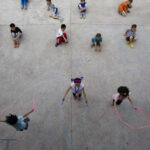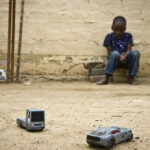Report says alcohol use fuels an already unequal power relationship between men and women, resulting in several negative outcomes.
South African women drink less alcohol than their male counterparts, but they “bear the brunt” of the consequences of harmful drinking, particularly with regard to their risk of contracting HIV.
This is according to a report of the University of the Witwatersrand and the Soul City Institute for Health and Development Communication released in Johannesburg on Tuesday.
“In short, alcohol use fuels an already unequal power relationship between men and women, resulting in several negative outcomes, including HIV and Aids, sexually transmitted infections, teenage pregnancy and sexual assault,” the report found.
“Women often find themselves at the receiving end of men’s alcohol consumption and/or victims of their own structural circumstances.”
The report says: “Since heavy episodic drinking is associated with acute effects such as unintentional injuries, sexual violence and risk-taking, women (who themselves may drink heavily or whose partners do so) are placed at increased risk of several acute negative outcomes.”
According to the government’s 2014 antenatal survey, 7.1% of people between the ages of 15 and 24 are infected with HIV. Of these, men only account for 2.9% of infections, whereas the figure for women is almost four times as high at 11.4%.
Although the report is based on the South African context, women in other African countries are similarly at risk from the consequences of harmful alcohol use and HIV.
A 2010 study conducted in Tanzania, and published in the medical journal Sexually Transmitted Diseases, found that alcohol consumption made women more vulnerable to transactional sex. The study also found that condom failure, where a condom breaks or falls off during sex, was five times more likely among women who had consumed alcohol than in those who had not.
Amy Green was a health reporter at Bhekisisa from 2013 until 2016.





